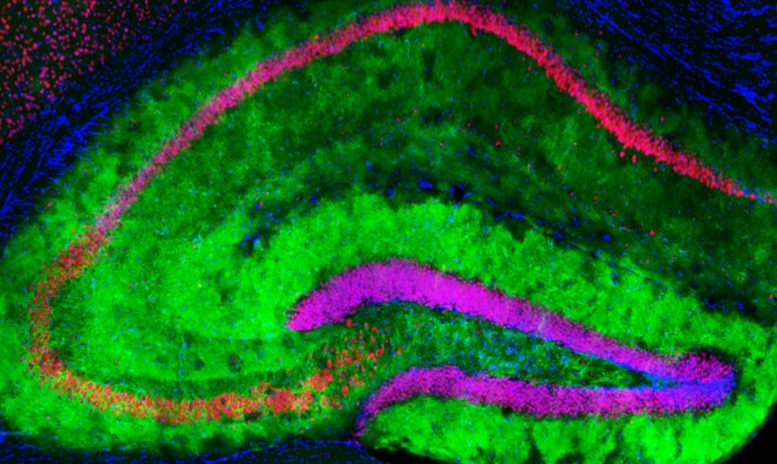
Weill Cornell Medicine scientists have discovered that astrocyte receptors can have opposite effects on cognitive function in male and female preclinical models. Published in Cell Reports, the study reveals that astrocytes play a crucial role in sex-specific brain mechanisms. Focusing on the mGluR3 receptor, the research demonstrated that increasing its levels enhanced memory in older females while reducing it impaired memory in young females. Conversely, in males, reducing mGluR3 enhanced memory. These findings suggest that therapeutics targeting astrocytic receptors may need to be evaluated for sex-specific effects, highlighting the importance of considering biological sex in neurological research.
Research from Weill Cornell Medicine reveals that astrocyte receptors impact cognitive functions differently in males and females, suggesting a need for sex-specific approaches in developing treatments targeting these brain cells.
Scientists at Weill Cornell Medicine have discovered the first evidence that receptors in astrocytes, brain cells that support and regulate neurons, can have contrasting effects on cognitive function in male and female preclinical models. This research highlights the role of astrocytes in contributing to gender-specific brain mechanisms.
While many studies have tested the behavioral effects of astrocytic receptors, none of them have addressed whether biological sex plays a role and most have tested only males. This study, published on May 24 in Cell Reports, challenges the long-standing assumption that astrocytic signaling has similar cognitive effects in both sexes.
“Our study reveals that previously reported cognitive effects in males can’t be extrapolated to females,” said Dr. Anna G. Orr, the Nan and Stephen Swid Assistant Professor of Frontotemporal Dementia Research and an assistant professor of neuroscience in the Feil Family Brain and Mind Research Institute and the Helen and Robert Appel Alzheimer’s Research Institute at Weill Cornell Medicine.
Changes in astrocytic receptors are seen in various neurological conditions with known sex differences, including neurodegenerative disorders, schizophrenia, stroke, and epilepsy. However, the mechanisms promoting sex differences remain poorly understood.
How do Male and Female Brains Differ?
In the study, Dr. Samantha M. Meadows, first author and former graduate student in the Orr lab, focused on mGluR3, a predominant glutamate receptor in astrocytes and a top-altered gene in dementia. The team used gene editing and stimulation of engineered receptors in animal models to selectively manipulate astrocytes and examine the effects of mGluR3 and related receptors on learning, memory, and other cognitive and behavioral outcomes.
The researchers found that increasing astrocytic mGluR3 levels enhanced memory in older females and reducing these levels was sufficient to impair memory in young females, demonstrating that mGluR3 promotes memory recall in females. However, in males, reducing mGluR3 enhanced memory, and increasing the receptor had no effects. “Interestingly, the cognitive impact of these receptors is not conserved among sexes,” Dr. Meadows said.

This image of the mouse hippocampus, a part of the brain involved in learning and memory, shows mGluR3 receptors on astrocytes (green), neurons (red), and cell nuclei (blue). Credit: Orr Lab
To understand if these divergent effects were unique to mGluR3 or reflected a broader feature of astrocytic receptor signaling, Dr. Meadows worked with co-author Dr. Adam L. Orr, an assistant professor of research in neuroscience in the Brain and Mind Research Institute and the Appel Alzheimer’s Disease Research Institute, to selectively stimulate different astrocytic receptors while mice performed tasks involving learning and memory.
To their surprise, the team found further evidence that receptor activation caused either memory enhancement or impairment, depending on biological sex. “Normal brain function seems to require a sex-specific balance in astrocytic signaling,” Dr. Adam Orr said.
This study suggests that mGluR3 modulators being developed for treating disorders such as schizophrenia and anxiety may need further study to assess their impact on different sexes. “Therapeutics influencing astrocytic receptors may cause sex-specific cognitive effects in part due to the divergent roles of astrocytes in males and females,” said Dr. Anna Orr.
The lab is investigating what may cause the differential effects and if other brain functions are also changed in a sex-specific way.
Reference: “Hippocampal astrocytes induce sex-dimorphic effects on memory” by Samantha M. Meadows, Fernando Palaguachi, Minwoo Wendy Jang, Avital Licht-Murava, Daniel Barnett, Till S. Zimmer, Constance Zhou, Samantha R. McDonough, Adam L. Orr and Anna G. Orr, 24 May 2024, Cell Reports.
DOI: 10.1016/j.celrep.2024.114278









Be the first to comment on "Researchers Uncover Significant Cognitive Differences Between Male and Female Brains"